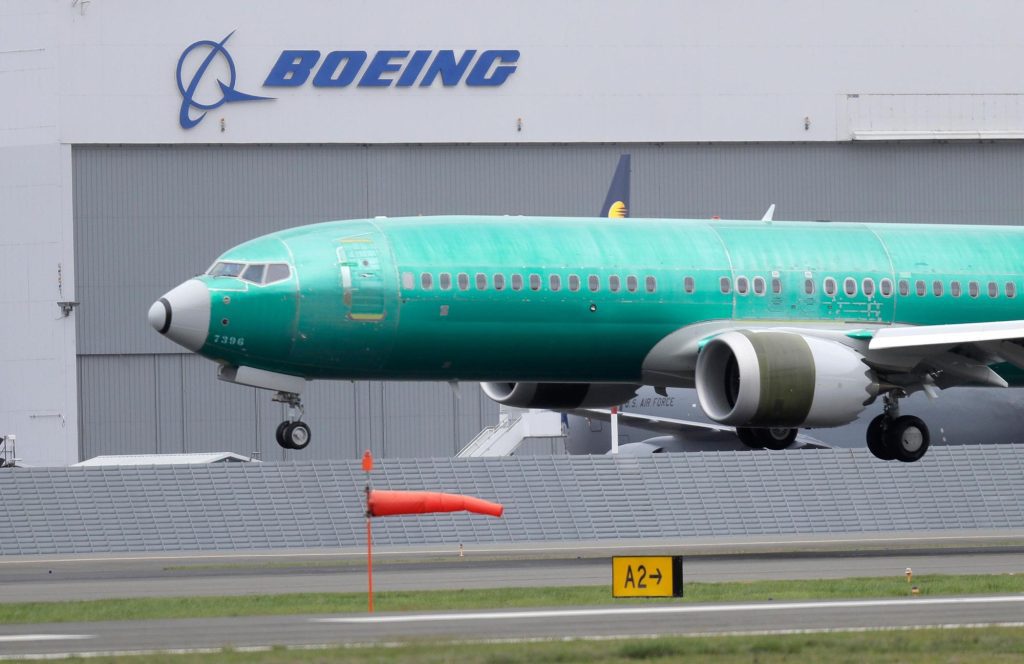By DAVID KOENIG (AP Airlines Writer)
In response to a U.S. government review, Boeing stated on Tuesday that it would collaborate with employees who were found to have broken company manufacturing procedures to ensure they comprehend their job instructions.
The airplane manufacturer outlined its most recent actions to fix shortcomings in quality in a note to employees from Stan Deal, president of Boeing’s commercial plane division.
The note was sent out after the Federal Aviation Administration completed a six-week evaluation of the company’s manufacturing processes for the 737 Max jetliner following an incident where a panel detached from one of the planes during an Alaska Airlines flight on Jan. 5.
The FAA assessed 89 aspects of production at Boeing’s plant in Renton, Washington, and identified 33 failures, according to a source familiar with the report. The source spoke anonymously to discuss details that have not been publicly released, although they were previously reported by The New York Times, which had seen a slide presentation on the government’s review.
Stan Deal stated in his note that “the vast majority” of violations found by the FAA were related to workers not following Boeing’s approved procedures.
According to Deal, the company will implement corrective actions that involve “working with each employee identified with a non-compliance during the review to ensure they fully understand the work instructions and procedures.”
Boeing will also introduce weekly compliance checks for all work teams in the Renton factory, where Max jets are assembled, he said.
Deal acknowledged a recent assessment by a panel of government and industry experts, who found that Boeing’s procedures for ensuring safety were overly complex and changed too frequently.
“Our teams are working to simplify and streamline our processes and address the panel’s recommendations,” he told staff.
The day before the incident on Alaska Airlines flight 1282, engineers and technicians at the airline wanted to take the plane out of service to investigate a warning light linked to the plane’s pressurization system. However, the airline continued to operate the plane and scheduled a maintenance check for later that night, The New York Times reported Tuesday. But before that could happen, a door-plug panel detached from the plane at 16,000 feet (4,800 meters) over Oregon.
Alaska stated to The Associated Press that the maintenance plan “was in line with all processes and procedures. Nothing required or suggested that the aircraft needed to be withdrawn from service.”
Bret Oestreich, president of the Aircraft Mechanics Fraternal Association, the union for technicians at Alaska, said there was nothing unusual in Alaska’s handling of the matter. He said the warning light does not indicate the location of a possible pressurization issue, and mechanics had been unable to pinpoint a problem after the light tripped on three earlier flights.
The earlier cabin-pressurization warnings led Alaska to stop using the plane on flights to Hawaii. A few days after the incident, National Transportation Safety Board Chair Jennifer Homendy stated that the warnings were unrelated to the accident. A preliminary report pointed to four bolts that were missing after a repair job at the Boeing factory.
In addition to the ongoing FAA and NTSB investigations, Boeing is under scrutiny by the Justice Department to see if its recent issues, such as the emergency door panel incident on an Alaska Airlines jet, violate the terms of a settlement the company made in 2021 to avoid criminal prosecution after two crashes of Max jets in 2018 and 2019 that killed 346 people in Indonesia and Ethiopia.
Also on Tuesday, Boeing announced that it received orders for 15 jetliners in February and delivered 27 planes, including two Max jets each to Southwest Airlines and United Airlines. TD Cowen analyst Cai von Rumohr described the deliveries as “weak” but not unexpected due to increased FAA scrutiny of the company.
The decrease in deliveries is causing Boeing to fall further behind its European competitor Airbus, which delivered 49 planes last month, and is becoming more and more frustrating for airlines.
Southwest mentioned that it might have to slow down its growth, as it now anticipates receiving fewer Max jets than originally planned due to Boeing’s difficulties.
Boeing Co., based in Arlington, Virginia, saw its shares drop by over 4% on Tuesday.









